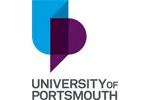We're moving! This site will be relocating to goingto.university in 2026. Please update your bookmarks to the new address.


| The award | How you will study | Study duration | Course start | Domestic course fees | International course fees |
|---|---|---|---|---|---|
| BSc (Hons) | Full-time, Sandwich | 3 - 4 years | September | - | - |
Overview
Mathematics has shaped societies for thousands of years – from the Ancient Babylonians to today's increasingly sophisticated technology. Continue the tradition of unpicking complex mathematical problems and apply your methods to scenarios such as monitoring the spread of disease, predicting the route of a cloud of ash from a volcano or forecasting climate change.
Study core mathematical topics including calculus, algebra, matrices, modelling and differential equations. Then shape your degree to your ambitions and interests in following years, by choosing optional modules in pure and applied maths such as abstract algebra, financial modelling, operational research and cosmology.
When you graduate, you’ll be in high demand, especially in the expanding technology, data and machine learning industries.
Course highlights
Careers and opportunities
Mathematics is more than just number crunching.
A degree in mathematics shows that you have the ability to think analytically and conveys an intellectual maturity that many employers look for when they hire staff.
The demand for mathematics graduates is increasing too. The Council for the Mathematical Sciences predicts more than 7 million people in the UK will need mathematical science skills in 2030 – an increase of 900,000 compared to 2009, in particular in the fast-growing machine learning and space sectors.
Graduate destinations
Our graduates have worked for companies such as:
What jobs can you do with a mathematics degree?
Our graduates now work in roles including:
Ongoing career support – up to 5 years after you graduate
Get experience while you study, with support to find part-time jobs, volunteering opportunities, and work experience.
Towards the end of your degree and for up to five years after graduation, you’ll receive one-to-one support from our Graduate Recruitment Consultancy to help you find your perfect role.
Placements (optional)
After your second or third year, you can do an optional work placement year to get valuable longer-term work experience in industry.
A placement year gives you an advantage over other graduates who may understand theory but won't have the experience of applying their learning to a working environment. We’ll help you secure a work placement that fits your aspirations, and you’ll get mentoring and support throughout the year.
You could also choose to set up your own business, or take a voluntary placement.
Potential roles
Previous students have taken placement roles such as:
Potential destinations
They've completed placements at organisations including:
https://www.port.ac.uk/study/undergraduate/undergraduate-fees-and-student-finance
112-120 points from 2 or 3 A levels, or equivalent, including 40 points from Mathematics.
English language proficiency at a minimum of IELTS band 6.0 with no component score below 5.5.
Below are some suggested courses at other providers that you may also be interested in:
Theatre and Production Technology BA (Hons)
The Liverpool Institute for Performing Arts (LIPA)
Find out moreJapan Studies Bachelor of International Liberal Arts
International College of Liberal Arts (iCLA) at Yamanashi Gakuin University
Find out moreConsider a Foundation or Pathway course at University of Portsmouth to prepare for your chosen course:
If you do not meet the entry requirements for this course then consider one of these courses from another institution:
There are 530 other courses listed from University of Portsmouth. A selection of these are displayed below:
Join the StudyLink email list and never miss a chance to turn your study abroad dreams into reality!

Find out more about studying in the United Kingdom